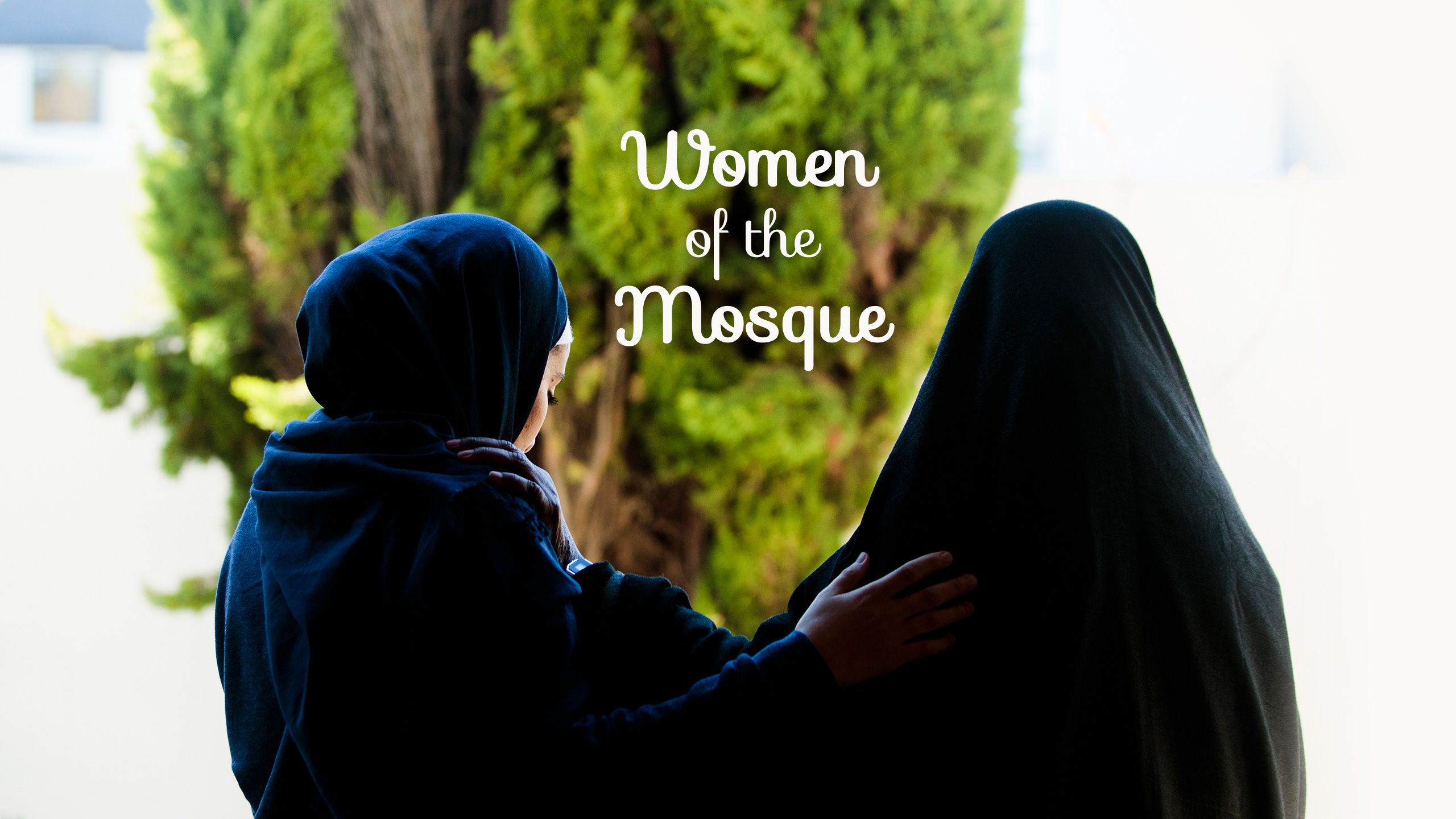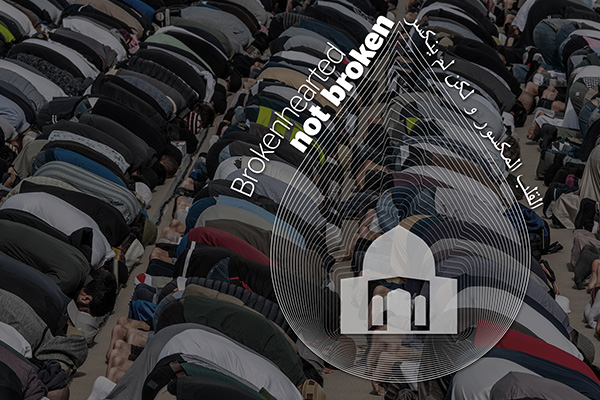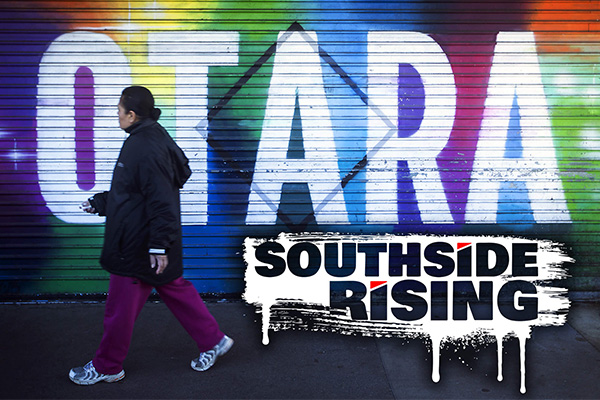
The solid pine door that separated a gunman from 30 women and children at the Al Noor Mosque is unremarkable. The women that pray behind it are far from it.
An unlocked solid pine door separated a crazed gunman from 30 women and infants.
It was March 15, the day a terrorist entered Masjid Al Noor on Deans Avenue, Christchurch. His purpose was to kill.
He boasted he had done his homework about the Muslim faith and their temples in a now banned manifesto sent electronically moments before his murderous rampage.
Armed with a semi-automatic rifle, he went through the double mahogany-coloured doors at the entrance and walked straight ahead, past a closed solid pine door to the right.
In six strides, he entered the main prayer room where the men of the mosque were in prayer.
He knew what he would find; he had done his internet research. He knew Friday was the most important prayer meeting for Muslims: Jummah. He knew where the main prayer room was.
As he stormed back and forth through the hallway, the killer again strode past the closed solid pine door.
In the since-deleted live broadcast of his evil acts, the terrorist pays no attention to the door. The killer would spend a total of three minutes and 18 seconds inside the mosque. He would fire 236 shots, 181 of those inside the mosque.
A 28-year-old Australian man is in police custody and awaits trial over the attack. Did he know that behind the solid pine door, which he passed by several times, sat 30 women and babies? Did he know that prayer meetings were segregated?
On March 15, the women of Masjid Al Noor – some with infant children – sat in a space called the Sister Prayer Room. They were listening to the sermon being broadcast from the main prayer room on a TV fixed to the wall at the front of their room.
They heard every bullet fired. They continue to feel the effects of every bullet that found a target. They heard their husbands, their brothers, their sons being slaughtered.
Two women were killed at Masjid Al Noor – Husna Ahmed and Ansi Alibava – their bodies found outside the mosque. At Linwood mosque, Linda Armstrong and Karam Bibi died. The four women were among 51 Muslim people killed in prayer at Al Noor and Linwood mosques on March 15.
Twenty-eight women and infants survived from Al Noor, and an unknown number of women from the Linwood Mosque.
This is the story of what happened behind that solid pine door at Masjid Al Noor. These are the words of the brave women of the mosque.
The Shahada is an Islamic creed, one of the Five Pillars of Islam. It declares belief in Allah as the one true God and the acceptance of Muhammad as Allah’s prophet.
The Shahada is an Islamic creed, one of the Five Pillars of Islam. It declares belief in Allah as the one true God and the acceptance of Muhammad as Allah’s prophet.
Ashhadu Alla Ilaha Illa Allah Wa Ashhadu Anna Muhammad Rasulu Allah.
For every bullet that left his gun the women quietly chanted the Shahada – the Muslim testament of faith – as they scrambled to survive.
Ashhadu Alla Ilaha Illa Allah Wa Ashhadu Anna Muhammad Rasulu Allah.
Majda El Hajji whispered as she stared into the face of her son, just 5 months old, while bodies fell around them.
Ashhadu Alla Ilaha Illa Allah Wa Ashhadu Anna Muhammad Rasulu Allah.
Hawo Samatar whispered when she found her husband’s lifeless body in the main prayer room at Masjid Al Noor.
There is no deity worthy of worship but God who we call Allah and that Muhammad, like all the prophets that came before him, he is the final messenger - the seal of all prophets - Shahada the Muslim Testament of Faith.
– Shahada, the Muslim Testament of Faith
Majda El Hajji
As she stared into the face of her infant son, from her peripheral vision she saw the woman in front of her fall to the ground. Then she saw the blood.
Majda El Hajji knew her Muslim sister Ansi Alibava, 25, was dead.
“She was in front of me when we were running. I heard a bang then she fell, I could see the blood.”
El Hajji knew the life she was cradling in her arms deserved to be lived, she had to get him to safety.
“I just looked at his [her son’s] face and kept running. Everything disappeared; it was just him.”
El Hajji was not supposed to be at Masjid Al Noor on March 15. Her first child, a boy named Hud, was just 5 months old.
She planned to stay home on March 15, but her mother-in-law, Hawo Samatar, told her to bring the infant to Jummah – the main prayer meeting of the week.
“I didn’t want him to interrupt the prayers ... but my mother-in-law said he has to get used to the mosque and hearing the prayers.”
As they arrived at the mosque, Samatar held her grandson in her arms and turned into the Sister Prayer Room two steps from the entrance to the right.
El Hajji’s husband, Saad Abdukadir, and her father-in-law and Samatar’s husband, Abdukadir Elmi, carried on down the hallway, four more steps, to the main prayer room.
It would be the last time Samatar would see her husband alive.
El Hajji prayed while Samatar cradled her infant grandson. The TV was about to broadcast the sermon from the main prayer room.
The imam had just finished the Islamic prayer when the broadcast was interrupted by two loud explosions.
“I thought there was an electrical fault,” El Hajji says.
“Then the TV went blank and the explosions kept going. It was fast bang, bang, bang.”
“I was kneeling by my mother-in-law, I just looked at my son’s face. I just kept looking at him. People were looking out the windows and they could see the bodies. I just saw him.”
Ashhadu Alla Ilaha Illa Allah Wa Ashhadu Anna Muhammad Rasulu Allah.
Ashhadu Alla Ilaha Illa Allah Wa Ashhadu Anna Muhammad Rasulu Allah.
“I kept saying the Shahada, my mother-in-law was sitting on the floor and she draped herself over my son to protect him.
“He was crying. I had to get him out, we didn’t know how many people were out there with guns. I grabbed my son and some of us ran out.”
El Hajji remembers cradling her son to her chest to muffle his cries. She recalls Ansi Alibava being in front of her as they left through another door which took them directly to the right hand side outside the mosque.
There is a short fenced path that leads to a side gate next to the main entrance of the mosque. Alibava opened the gate and ran, closely followed by El Hajji.
I was thinking about everything, my husband in the room, getting my son to safety, my sisters.
“I was saying my Shahada when there was an explosion and then I saw her fall.”
El Hajji could not stop to mourn her friend – her son’s life depended on every move, every decision she would make. She cradled her son even closer to her chest and ran.

Hawo Samatar
Samatar heard two loud explosions while listening to the sermon in the Sister Prayer Room, she knew immediately that the sound came from a gun. With her infant grandson in her arms, she instinctively braced her body over his.
Ashhadu Alla Ilaha Illa Allah Wa Ashhadu Anna Muhammad Rasulu Allah.
She whispered to him as he lay in a makeshift cocoon created by his grandmother’s body.
Ashhadu Alla Ilaha Illa Allah Wa Ashhadu Anna Muhammad Rasulu Allah.
She whispered to him again to soothe his cries.
Bang. Bang. Bang. The gun screamed again.
El Hajji grabbed her son from Samatar and ran.
Samatar slowly followed El Hajji and Alibava out of the side door – she was going as fast as her legs would take her. When she made it out of the first gate – she heard the explosion and saw Alibava fall – the two women were about 5 metres in front of her.
Samatar stood there stunned as the trauma unfolded in front of her.
She quickly scanned her surroundings for her daughter-in-law, but she couldn’t see El Hajji with her grandson. She made a decision to find them.
Speaking in her native tongue, Samatar explains to a translator what happened next.
She [Samatar] walked past him [the shooter]. They walked past each other and he didn’t notice her.
“She was waiting for him to leave so she could cross the road, to go search for the baby. She didn’t know what the shooter looked like then.
“She went to search for their bodies and couldn’t find them. That’s when she thought the shooter had kidnapped them.”
About 20 minutes later, local woman Jennifer Paterson stopped Samatar and asked if she was searching for her daughter. Samatar nodded yes.
Samatar says Paterson led her to a vehicle and lying down in the back was El Hajji, and in her arms was her grandson Hud – both were alive.
Samatar would later learn that, after Alibava was shot, El Hajji continued to run. She was saved by Paterson, who told El Hajji to hide in the back seat.
Samatar was overwhelmed that they had survived. She told El Hajji to stay in the car while she returned to the mosque to find her husband Elmi and her son Saad.
When Samatar returned, she entered through the same door she escaped and made her way into the main prayer room.
As she scanned the faces of the dead and the living, she saw her husband lying on the ground. She recognised him by his clothes.
“She tried to pull him up by his shoulder so she could see his face,” Samatar’s translator says.
“But she didn’t have the strength. Then she saw the blood, that’s when she knew he had died.
“She turned her head and saw another Somali man she knew with his dead son in his arms.
“She said her Shahada, and tried to find her son but couldn’t find him – that’s when she became disoriented.”
Faduma Yusuf
God’s plan and Faduma Yusuf’s plan differed – the timing was off on March 15. If the timing had been right she, her husband Said Abdulkadir, and her 1-year-old daughter Layla may not be here.
They were late for Friday prayers and there were no parks, so Said drove the vehicle up to the entrance to let Yusuf and her daughter out.
Yusuf was unbuckling her daughter from her car seat when her husband told her to stop – something was wrong.
“The doors were wide open and no one was sitting down [in the main prayer room] to listen to the Khutbah and usually Fridays are packed,” Yusuf says.
“Then he said, ‘Look, people are on the floor. They’re dead.’ I looked out and saw nothing.
I always say Alhamdulilah, which means I thank God that I didn’t see any of those traumatic scenes because there were a lot of people who were deceased who were on that floor and I saw nothing. I consider it a protection from God that I didn’t see those things.
“When I looked in the masjid, it looked normal for me.”
Yusuf ignored Said and continued to unbuckle her daughter when three explosions rang out. Construction work, she thought, as she went to lift her daughter out of the car.
“I remember saying to him, ‘This is Christchurch.’”
Said jumped out of the car, put the baby back in her car seat and got Yusuf in the passenger seat. He tried to drive off.
The gunman had come out to reload and started firing at their vehicle.
“There were a lot of bullets on our car and there are still bullets in our car. It gives me anxiety every time I see it because the baby was in the back seat and he was shooting behind us and at that time I said, ‘My baby has died.’’’
“We stopped the car and I’m still not fully processing that this is gunfire and these are gunshots.
“Personally, I didn’t see the man and I didn’t see the deceased on the floor. I didn’t see the carnage. I just remember the peoples' faces looking frightened.
“I remember fighting with my husband to pull the car over to help these people. It’s that instinct to help them. So he pulled the car over some distance past the masjid and I wound my window down and say out the window, ‘There’s apparently’ – and I’m still saying apparently because I still don’t believe there’s a gunman because there are still people walking toward the masjid – I say, ‘apparently there’s a gunman at the masjid.’’’
As they were talking to passers by, one man jumped in their vehicle and a bullet just missed his head.
While parked up, Yusuf spotted her brother.
“I told him to get in the car, he refused. He wanted to check whether Mum was OK.”
Yusuf grabbed her brother and held onto him outside the window. As her husband drove off, her hand slipped and her brother fell onto the road.
“That’s when I thought, ‘My brother has died and my baby has died.’ That’s when I became disoriented. We drove into Caltex on Lincoln Rd and I rang the police.
“I said my Shahada. It is God’s will.”

Dahabo Abdi
Dahabo Abdi sat in the middle of an empty Sister Prayer Room and closed her eyes.
As the gunshots sounded and the body count mounted, Abdi made a decision. If March 15 was the day her book of life would close, it was Allah’s will. She would sit in the middle of the room and wait for the gunman to deliver her to Allah.
Moments earlier, she was standing at a large window, which looks out over the entrance, and could see the attack unfolding.
The window which is covered in a geometric design and shields those within has small gaps that can be seen out of. Abdi saw him – he didn’t see her.
Ashhadu Alla Ilaha Illa Allah Wa Ashhadu Anna Muhammad Rasulu Allah.
She chanted.
Ashhadu Alla Ilaha Illa Allah Wa Ashhadu Anna Muhammad Rasulu Allah.
She chanted again and again.
If the terrorist was going to kill her, he would have to come through the solid pine door and shoot her. She would make no moves to hide.
She quickly learned that what she believed was a microphone malfunction that had caused the loud explosions was in fact a gunman, bent on destroying their close-knit community.
As the chaos unfolded around her – people fleeing from the room into store rooms, a bathroom and outside – Abdi sat in the middle of the room in quiet reflection.
Of all the places to die, how lucky I am to be able to die here in the masjid. It’s an honour.
She recalls her last conversation with Husna Ahmed.
“I said to her, ‘Sister, please stay.’ But she said she couldn’t. I think she wanted to check on her husband. Her husband is in a wheelchair,’’ Abdi says.
“That was the last time I saw her alive.’’
From the floor in the Sister Prayer Room, Abdi returned to saying her Shahada. But the gunman wouldn’t find Abdi that day. It was not Allah’s will, she says.
When silence fell on the masjid and help arrived, it took a few minutes for Abdi to realise the police had come to rescue them.
When she left out of the main gate and scanned her surroundings, first she saw Alibava.
Alibava’s husband was sitting next to her body.
“He just sat there with her. Looking at her,” Abdi says.
Then her eyes found Husna’s body, further down on the footpath.
Ashhadu Alla Ilaha Illa Allah Wa Ashhadu Anna Muhammad Rasulu Allah.
Abdi whispered again as she looked over the bodies of her dead sisters.
Minutes later, Abdi would be told the terrorist had traveled to Linwood mosque, 10 minutes away, and stolen the lives of more Muslim brothers and sisters.

Intertwining flowers and messages weave between the gates outside the Al Noor Mosque in Christchurch.
Intertwining flowers and messages weave between the gates outside the Al Noor Mosque in Christchurch.
Jumaya Jones
In the Sister Prayer Room, Jumaya Jones heard the quick succession of explosions.
“I knew it was guns,” Jones says. “I don’t know how I thought that. I wasn’t thinking this is an electric fault and I didn’t think this was firecrackers. I just knew.
“The question was: who?
“My first instinct was to run away from the sound and most of us did that, we ran away from the guns and we were going towards the exit door outside.”
Jones is the women’s co-ordinator for Al-Noor Mosque.
All of us, individually, were in survivor mode trying to think what’s best.
“For me, I remember a lot of chattering and I couldn’t really think straight but in my head I kept thinking: I need to call 111 - this is an emergency.
“So I grabbed my handbag and as I was going into the bathroom, I saw some men climbing over the fence, because where I was you could see the fence, they were bleeding so in my mind that confirmed that it was a shoot up.”
Jones says the women reacted quickly to the unfolding terror. They split into groups – some women went it alone. The first group made their daring escape while the gunman was inside. They all survived.
The second group came into the line of fire.
“I know that when the gun started, a few of them ran out and they were saved because the gunman was inside.”
The timing was right.
“But the timing was bad for a few people running when he was out trying to get more bullets.”
While Jones called 111, her mind was racing – her husband was in the main prayer room. Was he alive? Then her thoughts went to her son. After speaking with the 111 operator, Jones phoned her son.
“He picked up and I asked him, ‘Where are you?’
“He said, ‘I’m at Linwood.’ So I’m thinking, ‘Thank God he’s not at this mosque.’ I didn’t know then that the gunman was going there too.”
Her son arrived late to Linwood, he saw the gunman on the road. He too would call police. Her son initially thought the gunman was one of the Muslim brethren.
“He actually rang the police and said there’s a Muslim guy running with a gun. Police arrived quickly.”
Back at Al Noor, the police arrived and tried to get all of the women out of the mosque. Most would not heed the advice.
“A lot of my friends didn’t care,” Jones says. “They went back into the men’s side to look for their loved ones.”

Messages of condolences hung outside the Al Noor Mosque in Christchurch.
Messages of condolences hung outside the Al Noor Mosque in Christchurch.
Samira Dawoud
When the gunshots rang out, Samira Dawoud hobbled to the window, across from the pine door near another exit door, and peered out.
She could see some of her Muslim brothers, trying to jump over a fence. One man she had known since 1969 was bleeding profusely.
“That was the first time I had seen blood like that,” Dawoud says.
She remembers the infants crying. She told the mothers to say the Shahada.
“It’s the first thing I thought of. Say the Shahada. Say the Shahada to the babies.
“And after the second round of shots, it went quiet. That’s when I went outside to look for my husband and he was looking for me.”
“We saw each other and he said, ‘Come on, let’s go.’ But I said, ‘No, I want to stay. I want to help the people.’”
Dawoud tears up as she reveals the heartbreaking scene she found as she hobbled from person to person.
“One boy, I knew him since he was 6. He died,” she says.
Dawoud was on the right hand side of the mosque which has a width of 2 metres between a fence and the mosque wall. It’s the same path that El Hajji, Alibava and Husna took to escape.
“I kept saying the Shahada.”
Ashhadu Alla Ilaha Illa Allah Wa Ashhadu Anna Muhammad Rasulu Allah.
“It helps me to keep calm. I didn’t realise I was screaming.
“I felt helpless, all our people needed help, but I’m not a nurse. They needed to be helped,” she says.
“Then a policeman dressed in black and with his face covered tried to grab me and yelled at me to get out. I turned to him and yelled: ‘Don’t touch me. Don’t touch me.’
“He backed off and told me that they didn’t know where the shooter was and that I needed to leave.”
I went out that’s when I saw the other guy cradling his 3-year-old son. I called the ambulance - please come and pick up this boy I thought he was injured.
“But his dad said, no he’s been killed. I said to the ambulance driver, an older man, I said please try he’s just a baby, and the ambulance guy took them even though he couldn’t do anything for the baby.”
Dawoud says many of the survivors who weren’t injured were taken to the hospital for safety.
“The police took us – about 15 or 16 – to the hospital. They took statements from us right away. We stayed there until 9pm,” she says.
“I come from Iraq, I have been in Christchurch since July, 1995. I have never seen anything like this. I can still see the faces.”

The aftermath
The Masjid Al Noor sisters form a circle with their chairs to share the stories of what happened in the Sister Prayer Room on March 15.
It is the first time they have shared the intricate details of what happened that day with each other.
The women, some with their children, all credit their faith for carrying them through that day, that week, and the many more days, weeks, and years they will endure as some learn to live without loved ones they lost.
All the women who were in the Sister Prayer Room repeatedly said the Shahada when the bullets rang out.
It was their connection to Allah that kept some moving, that allowed others to find acceptance. It brought peace at a time of hostility.
“We do not believe in luck. Our lives are predestined,” Jones says.
Every direction we go - Allah knows, every breath we take - he has planned it, every leaf that falls from a tree - Allah knows where it will land.
After her rescue, El Hajji was holed up at a home a few houses down from the mosque for hours before she learned her husband was alive.
Five of those hours she spent thinking Saad was dead – a brother from the mosque had mistakenly told her he had died.
“I mourned him. For five hours, I mourned him,” El Hajji says.
During those five hours, Yusuf was able to ascertain that Samatar and El Hajji’s husband was alive. She reconnected with El Hajji after receiving a frantic phone call from her sister-in-law.
“She told me our brother had died,” Yusuf says. “I said, ‘No, I was literally just talking to him before.’”
El Hajji interjects: “I wasn’t going to believe it until I saw him. I just kept quiet, and then when I did see him I cried again. He was here, he was alive.”
But they did lose a loved one: their father-in-law, Elmi Abdukadir.
“If he was going to die, the fact he died here in the masjid is exactly what he would have wanted,” Yusuf says.
“He was here every day – this was his second home, what an honour to die here.”
Both women say Samatar has been the glue that has held the family together.
“My mother-in-law shows what it is to accept Allah’s will. This happened by Allah’s will and nothing will happen out of Allah’s will, so when she saw her dead husband she could find peace because of her faith.
“By God's will he’s gone, by God’s will, I will accept. She is strength,” Yusuf says.
The brave women of the mosque exhibit no ill will toward the terrorist: he will answer to Allah.
Asked why they think the terrorist didn’t enter the Sister Prayer Room, Yusuf believes it was divine intervention mixed with ignorance.
“He obviously studied that Friday is very important to Muslims, that they come and they congregate to pray,” she says.
“But he never considered the women that come to pray. He never thought that the women were here, and I thank God he did not know that there were women in this room that day. They were protected by God’s will that day. He did not have the knowledge. He did not know us.”


WORDS Florence Kerr
VISUALS Christel Yardley
DESIGN Kathryn George
EDITOR John Hartevelt










